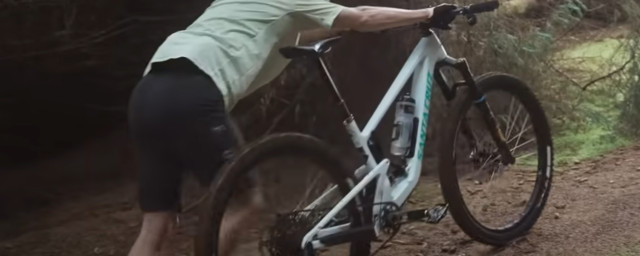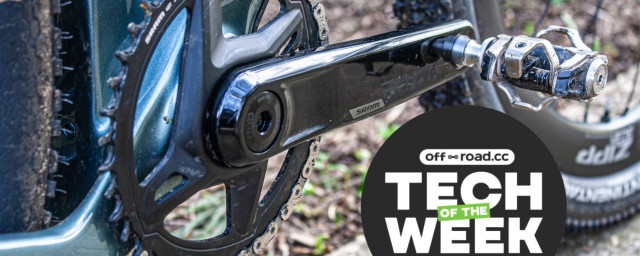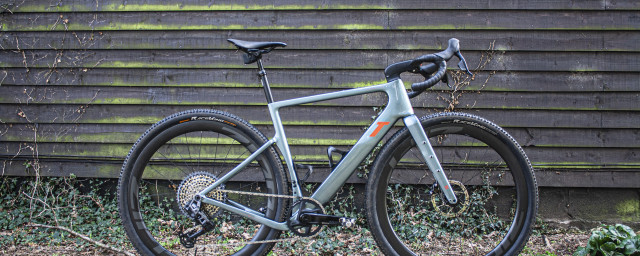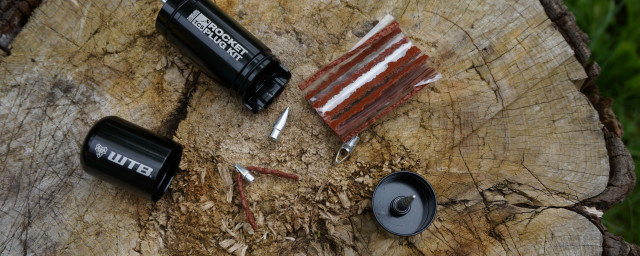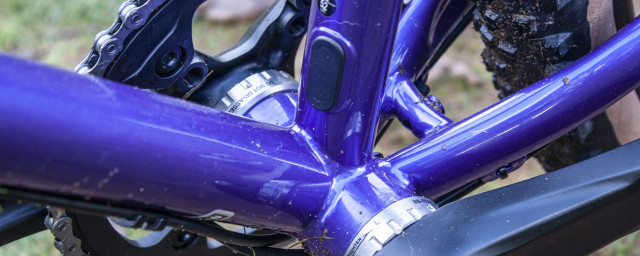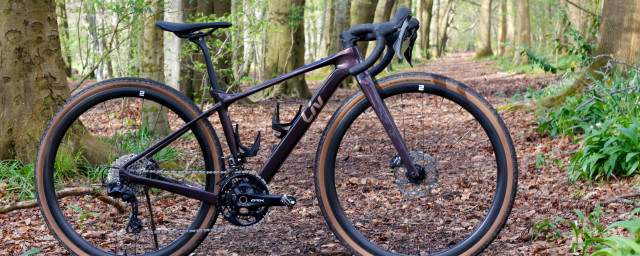The Marley 1.0 is Ragley’s alloy trail hardtail, and it's impressively capable while being heaps of fun on a range of trails. Ragley has been wise with the spec and for the most part, the geometry is on point. However, it trades climbing excellence for its downhill prowess.
- Boardman MHT 8.9 2020 review
- Marin Bobcat Trail 3 2020 review
- The best hardtail and full suspension mountain bikes you can buy for under £1500
The Marley 1.0 sits at the budget-friendly end of Ragley’s range, and as such it’s built around a 6061 aluminum frame. It gets 130mm of front suspension and a pair of 650b wheels. The whole build weighs in at 13.8kg.
The 1.0 model on test sits £300 above the Marley 2.0, which lacks a dropper post, trades the 1x11 drivetrain for a 1x10 setup, and gets a RockShox Recon Silver fork.
Ragley has routed most cables externally on the Marley frame, and it’s very tidily done; purpose-built clamps guide the brake hoses along the underside of the top tube and seat stays. Meanwhile, the dropper post’s cable is internally routed.
There’s also a threaded bottom bracket, which makes maintenance that bit easier.
That 130mm of travel comes courtesy of a Marzocchi Bomber Z2. Marzocchi, being owned by Fox, kits with Z2 with many of the same tricks you’ll find on a Float 34 – including the bushings, seals and general chassis design – but adds its own Rail damper.
To house that damper the stanchions are a little thicker, which adds some stiffness – as Rach found with her Vitus Escarpe 29 CR – but also a bit of a weight penalty.
Marzocchi keeps the Z2's adjustments nice and simple, opting for just rebound and compression adjustments.
The Bomber Z2 is a wise choice on the Marley 1.0. It’s an excellent performer. It’s supple off the top end, yet supportive in its midstroke to create a comfortable but engaging front end.
The Marley 1.0 benefits from a Shimano Deore 1x11 drivetrain. I can already hear the grumbles when many cheaper bikes – such as the Boardman MHT 8.9 (£1000) or the Vitus Sentier 27 VR (£1,200) – are coming with 12-speed. However, Ragley has pulled a clever one and kitted the bike with an 11-51t cassette.
That gives a very comparable range, even if the difference between the gears is a little more noticeable. The important thing, though, is that you still get that large 50t cog for a welcome helping hand on the climbs.
The brakes are Shimano Deore M1600, and I’ve had no issue with them over my test period. They have a bit more modulation than cheaper models, and have that typical Shimano brake feel. They also provide plenty of power, especially for general trail riding.
The wheels on the Marley 1.0 involve WTB’s STi 30 rims laced to Nukeproof Neutron hubs. They come wrapped in the classic combination of a Maxxis Minion DHF up front, and a DHR II at the rear.
For 2021, Ragley has specced the 2.6” wide, EXO+ carcassed versions across the whole range, and I wholeheartedly support that decision – it allows the bikes to be ridden harder without as much worry of wrecking the wheels, plus you get the extra grip of the wide tyres.
Grip-wise, there’s not much to groan about. While the Minions can get a little sketchy in properly slick conditions, they work well in everything else. They excel in the dry, and cope as it gets wetter with a reasonable helping of confidence. It's only the really soft and sloppy patches where they get nervous.
Finally, the Marley comes kitted with a properly modern cockpit, with an 800mm bar and 50mm stem.
Having ridden the very well-reviewed Ragley Blue Pig briefly last year, I was excited to swing a leg over the Marley 1.0 – and happily, it feels equally as ‘Ragley’. The alloy frame of the Marley carries the same build quality as the pricer, steel-framed Blue Pig, and shares the same cockpit too.
It doesn't take long to feel comfortable on the Marley. It offers a roomy riding position thanks to its 50mm stem and slack-ish seat tube. This gives you plenty of space to shift weight fore and aft when out of the saddle and, for the most part, that saddle's a pleasant place to be.
The riding position comes from a 73° seat tube angle paired with a 455mm reach, and while those figures are far from long and progressive, it plants this bike firmly in the trail category. This 'trail geometry' will lend its hand to long miles as in the route above as well as techy singletrack.
However, 73° is edging into slack territory and, when paired with the bike’s super short 425mm chainstay, the climbing suffers. Even with the saddle pushed as far forwards as possible, your weight sits pretty far over the rear wheel. That's easily done anyway when the chainstay is so short.
This results in a fairly folded riding position when climbing, and as the trail gets steeper, the front end gets very eager to lift. It’s not world-ending – during my test period serious lift has only happened a handful of times – but it regularly gets light enough to reduce confidence when faced with a techy climb.
However, once the speed rises, this bike shows its hand as a true purveyor of the 650b wheel. It’s agile and great fun in the corners, it’s quick on the pedals and it’s got me loving mellower trails – popping off little rock lips and manualling through rollers is easy, thanks to those short chainstays and the low, 313mm bottom bracket.
It’s no slouch on more techy trails either. You won’t be piling into chunky sections with the reckless abandon of a full susser – or even a hardtail with a long-travel fork – but the 65.5° head angle makes for an impressively capable ride that doesn’t hold you back from riding them.
I’m impressed with how composed the Marley 1.0 is over chattery ground at speed, and that’s due to the 2.6” EXO+ cased rear tyre. It provides just enough damping to keep your eyes in their sockets when hurtling down spiky sections, but stays stiff enough to stop the wheel exploding unless things go very wrong.
To describe the Marley 1.0 in one word, it’s versatile. It strikes an excellent balance between agility and stability, meaning it slays quick, tight corners without getting totally overwhelmed in the techy sections and steep chutes.
As for the Marley 1.0’s value, it's on the money (no pun intended). The Vitus Sentier 27 VR trumps it with a £200 saving and (for 2021) much of the same kit, but what you save in cash will cost you on trails thanks to its more conservative geometry.
There’s then the Sonder Transmitter NX Eagle, (here's our review of the 2019 model), which is £100 pricier than the Marley 1.0. It's geometry is more progressive – a lengthier 462.5mm reach, steeper 75° seat tube and the same 425mm chainstays – but the spec isn't quite as good.
As its name suggests the Transmitter NX gets a SRAM NX 12-speed drivetrain, but you get SRAM's basic Level T brakes, a 150mm RockShox Sektor RL, an X-Fusion Manic Drop seat post, and own-brand hoops
Overall
If you’re looking for an engaging ride that won’t completely shy from techy riding, the Ragley Marley 1.0 ticks all the boxes – it's an agile but versatile playmate. It comes with a solid, well-considered build, too. It's a bike that's bound to make the world's short travel hardtail lovers happy.











